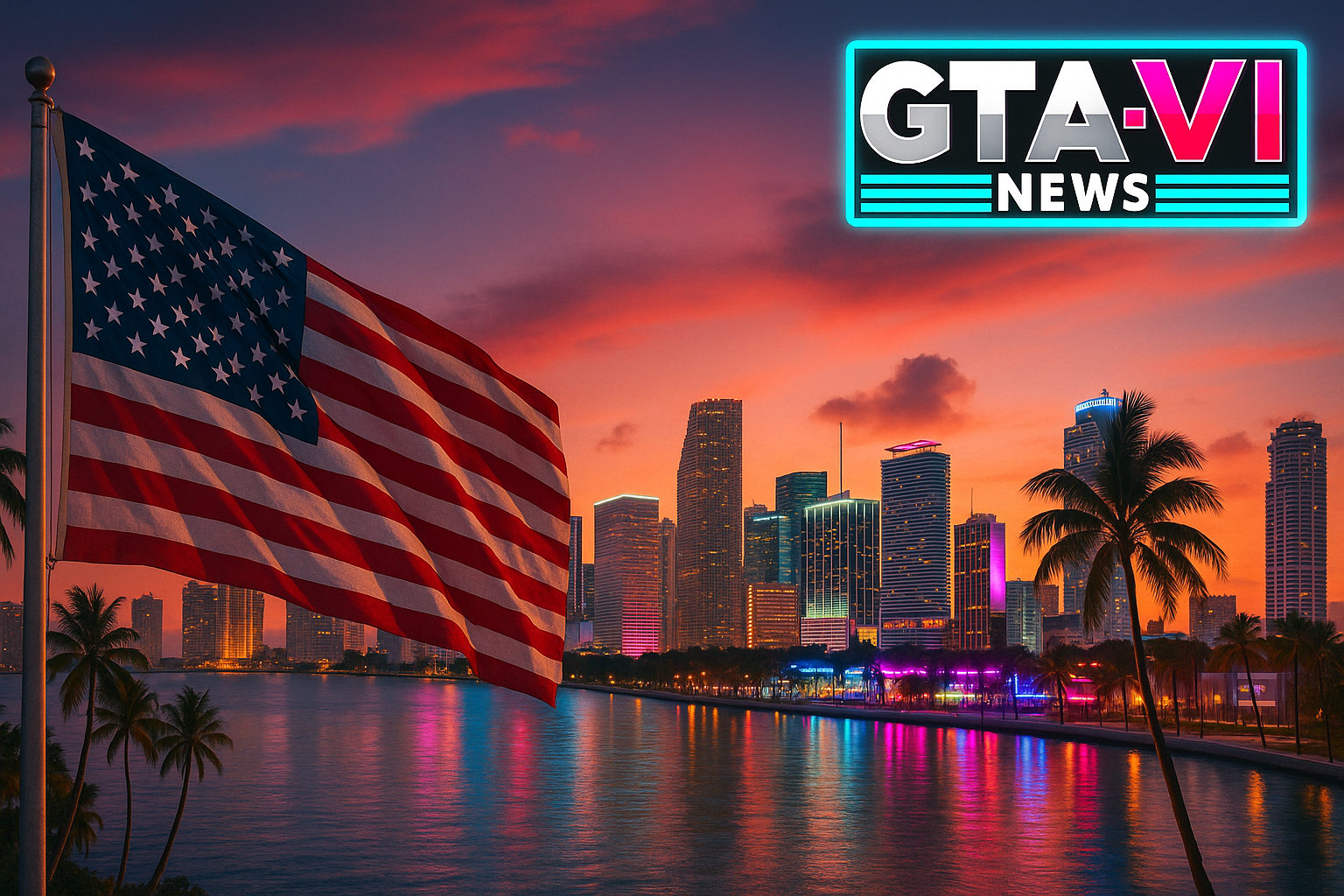Rockstar Co-Founder Says GTA 6 Has the Perfect Setting to Satirize American Culture

Grand Theft Auto 6 is returning to Vice City, and according to Rockstar co-founder Dan Houser, there’s no better place to explore the contradictions of modern America. The neon-soaked streets of Miami both seductive and corrupt offer the perfect backdrop for satire, ambition, and chaos. In Houser’s view, the city’s “duality of a glossy surface and a dark underworld” captures the very essence of what makes the GTA series timeless.
The Duality That Defines GTA
In a recent interview, Houser reflected on what makes America and Vice City in particular so central to GTA’s identity. “It has this duality of a glossy surface and a dark underworld,” he said, describing how that tension drives the series’ storytelling. For two decades, the franchise has thrived on that contrast: the dream and the downfall, the glamour and the grime. Few settings embody that better than Miami, a place that’s as famous for its sunshine and wealth as it is for its corruption and excess.
From GTA: Vice City’s depiction of the cocaine-fueled 1980s to the rumored focus on influencer culture in GTA 6, Rockstar has always used its fictional worlds to reflect real societal obsessions. Vice City’s bright facades have always hidden darker truths a mirror held up to the contradictions that define American life.
Satire at the Heart of the Franchise
For Houser, satire isn’t just part of the Grand Theft Auto DNA it’s the foundation. “When you think of GTA, you think of America: the chaos, the ambition, the dream, and the guns,” he said. Each entry in the series has examined a different aspect of that identity, from Liberty City’s cynical view of capitalism to Los Santos’ mockery of celebrity obsession. With GTA 6, it seems that mirror will turn toward the digital age an America where fame, wealth, and morality all blur together in the glow of a smartphone screen.
“In the 1980s, it was cocaine and excess,” one fan noted after the interview. “Now it’s social media and image.” That evolution feels inevitable. Rockstar’s satire has always kept pace with the times, and in today’s influencer-driven culture, Miami’s glitz feels more relevant than ever.
Vice City: A Symbol of American Excess
Vice City has always been more than a fictional location it’s an idea. Its pastel architecture, palm-lined boulevards, and relentless nightlife embody the fantasy of success, while its criminal underworld exposes the cost of chasing it. “It’s where different personalities collide,” Houser explained, “where you can see the American dream and nightmare playing out side by side.”
That contrast gives GTA its unmistakable tone: humorous yet cynical, chaotic yet deeply observant. In a country obsessed with image, Vice City is the ultimate stage. It’s no surprise Rockstar has chosen to return there for its most ambitious game yet. Miami’s modern culture from cryptocurrency scams to influencer empires provides fertile ground for satire and storytelling alike.
GTA’s Legacy of Reflection
Since its inception, the GTA franchise has been more than a crime simulator. Beneath the explosions and anarchy lies a sharp cultural critique. Each game has examined the systems that drive American society greed, fame, corruption, and the illusion of choice. Whether through GTA IV’s immigrant story or GTA V’s critique of capitalism and self-obsession, Rockstar has consistently held a mirror to the real world.
Houser’s comments reaffirm that tradition. By choosing Vice City again, Rockstar isn’t just revisiting nostalgia. It’s setting the stage for a modern reflection of America’s contradictions — a world where the pursuit of perfection often hides decay beneath the surface.
From Cocaine to Content
The original Vice City was drenched in 1980s excess: neon lights, designer suits, and endless ambition. It was a love letter and a warning about the price of success. GTA 6 appears poised to tell a new story, one shaped by digital fame and performative lifestyles. Instead of drug empires, the new underworld may be built on algorithms, attention, and influence. It’s a different kind of addiction but the same American story.
In that sense, Houser’s vision feels prophetic. The game’s rumored protagonists inspired by Bonnie and Clyde could embody a generation chasing relevance in a world that sells dreams as currency. If the 1980s were about getting rich, the 2020s are about getting noticed. And nowhere embodies that more than modern-day Miami.
The Art of Contradiction
What has always set GTA apart is its ability to make players both laugh and think. Its cities feel alive, its characters absurd yet believable. Behind every act of chaos lies commentary on politics, on culture, on the absurdity of modern life. Houser’s belief that Vice City remains the perfect canvas speaks to that duality. It’s a place that thrives on contradiction, and contradiction is where great satire lives.
“It’s a city of facades,” a longtime Rockstar developer once said about Vice City. “Everything looks perfect until you scratch the surface.” That idea has guided the series for decades, and it seems GTA 6 will push it further than ever before. The line between reality and performance has never been thinner, and Rockstar knows exactly how to blur it.
Why GTA 6 Feels So Timely
More than a decade after GTA 5, Rockstar’s return to Vice City feels like a deliberate statement. America has changed politically, culturally, and socially but the themes remain the same. The excess is still there; it’s just digital now. The city’s “glossy surface and dark underworld,” as Houser put it, perfectly captures a country obsessed with success but haunted by inequality and disillusionment.
GTA 6, then, isn’t just another sequel. It’s a reflection of where America stands today and a reminder of why satire still matters. In a world built on image, Rockstar is ready once again to pull the curtain back and show us what’s underneath.
